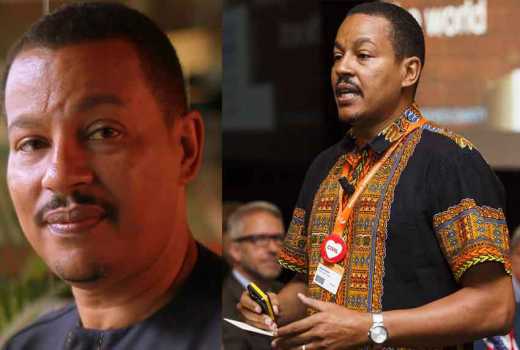
My meeting with Irungu Houghton, started on the backdrop of a bit of a chaotic scene. The night before had been pouring mercilessly, and the morning of our meeting was nothing but a rage of floods in most parts of the city.
Since Nairobi was still quite wet, we had to change our would-be venue, from J’s Kitchen in Westlands, to his offices at Amnesty International.
I arrive at Irungu’s offices, it’s still pouring a fair amount, and it seems like there’s nowhere to park. But wait, something interesting happens. One of the guards approaches me with his umbrella in tow, greets me, I greet him back, and then he proceeds to confirm that there’s no parking available.
He then asks who I’ll be going to see. The moment I mention, “Irungu Houghton,” the guard stands taller, he smiles wider, and quickly remembers there was a vacant parking slot somewhere. It’s an interesting sight to behold, this, my sudden change of fate, upon the mention of a name.
When Irungu and I finally meet, and he leads me to the office where we’ll be conducting the interview, I narrate to him this mini parking story.
Irungu breaks into endearing, contagious, laughter. I tell him I may have just found the solution to all my parking woes, and that I might try and pull that move in the central business district (CBD) one day.
Still laughing, Irungu says, “Oh no, no, don’t do that in the CBD, you might be arrested.” We laugh again.
Irungu Houghton, is the director of Amnesty International Kenya. Amnesty is an investigative and campaigning organisation that works with citizens to breathe life into the constitution. Essentially, it’s an organisation whose team helps defend the rights of the common people.
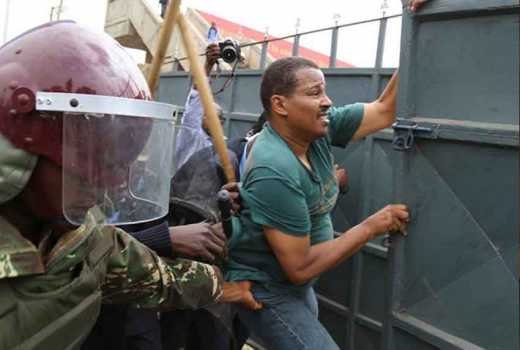
Irungu, who in his younger days planned to be a teacher, is best known for boldly fighting corruption, as well as fighting for civic space and public school land protection across Kenya. You’ve probably also seen him a number of times on morning television.
I sought to find out who Irungu really is, away from his career. This proved to be slightly difficult, seeing as, as he told me himself, Irungu is his work.
Nonetheless, we still tried to have a personal conversation. Here’s what I found out:
You were recently appointed as the Director of Amnesty International Kenya, well done Irungu.
(Smiles) Thank you. Thank you very much.
How did you land the job?
The vacancy was publicly advertised. I went through three rigorous interviews, and then I was informed I was successful.
However, because of the kind of work I do, I’d had previous interactions with Amnesty, so I knew what I was getting into, and that helped.
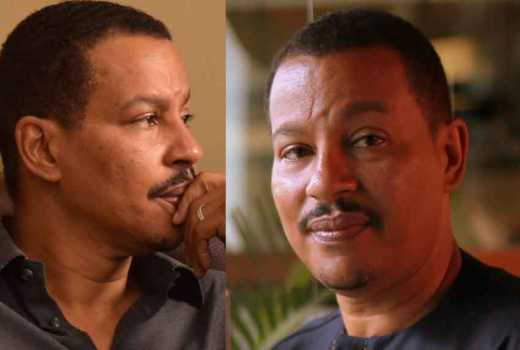
You had actively planned to become a teacher at some point, how did you then end up in advocacy?
Yeah, I was around 24 years old, when it became clear to me that I was going to teach at one of our seven universities at the time.
However, it was around the time I had completed my Master’s Degree, that Robert Ouko was killed. And the response from the student movements was to shut down the universities in protest.
So for a huge portion of that year, no recruitments were happening. I then drifted into adult education and anti-violence training, did that for four years, and slowly got into advocacy.
What were your 20s like? Too much studying, too much fun, or a bit of both?
So, Yvonne, here’s the thing…
Tell me, what’s the thing?
I was a DJ at some point in my life.
No way! Really?
(Laughs)Yes, really. I’ve been a DJ, a lover of music, a lover of plants, I’ve been into film, courtesy of my father, and I’ve had a huge appreciation for the media, courtesy of my mothers.
My biological mother worked for the national broadcasting house, KBC; and my second mother, if I can put it that way, was a journalist.
So those were my 20s. But I was also very serious, since for the other side of my work, I was a facilitator and trainer, especially in the fields of gender-based violence and agroforestry.
You are now 52 years old…
52! (Shakes head) Imagine that! (Smiles)
Can you believe how far you’ve come, since your younger days?
Wow. I sometimes just sit and exhale, you know? And this actually happened very recently. I sometimes look at my life and just express wonder, when I think about all the people that I’ve met, the people that I’ve had the opportunity to be mentored by, coached, told off, it’s been a great journey.
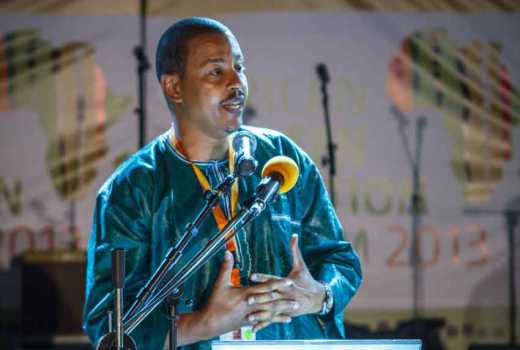
I also exhale when I think of all the leadership positions I’ve had, and all the people I’ve met in similar positions, who are doing everything they can, to try and create a better society. That’s been amazing.
Looking back, what would you tell your 29 year old self?
I’d say: “Actively create a dream of a society that is important to you. Act on your dreams. Take actions that are consistent with the kind of society you want to live in.”
Okay.
I’d also say: “Don’t wait for tomorrow. We don’t have tomorrow, we don’t even have the past, we only have today, the present, act on it, powerfully.”
And your 39 year old self, what would you tell him?
39, oh, gosh. When was that? (Pauses)
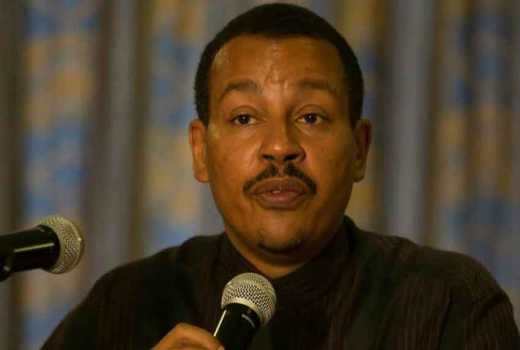
My 30s were when I’d had my longest stint in terms of employment and a job. Before that, I’d always consciously had a job for not more than two years. After the second year, I’d be out. But this changed in my 30s when I joined Oxfam.
So because by our 30s, a majority of us have generally had a lot of experiences, both good and bad, I’d tell my 39-year-old self, and others in that age group, to think long-term about things they’re passionate about. Think five, or ten years ahead.
There are so many young people, not just in Kenya, but around the world, who can’t seem to figure out how to do this life thing. What would be your encouragement to them?
You know, life is unavoidable. Even if it looks like you don’t know how to do this life thing, the reality is that you’re doing it. You are.
If your life is confused, unclear, and blurred, that is your life, until you decide to make better choices. Don’t stay stuck where you are, do something about it.
Here’s a quote that I would offer to all of us, both young and old, from Mohammed Ali, the boxer. He said: “I said I was the greatest, before I knew that I was.”
So greatness is a declaration. Declare it.
Do you think life gets harder, or easier, as we grow older?
Neither. I think life just is. Life is what it is, and I think the sooner we accept this, the better off we’ll be.
You got divorced at some point, what do you think was the main cause of the divorce?
(Long pause) I want to put it this way, the level of discipline that is required when one is single, is not the same level of discipline that is required when one is in a marriage, or is a parent, or a grandparent.
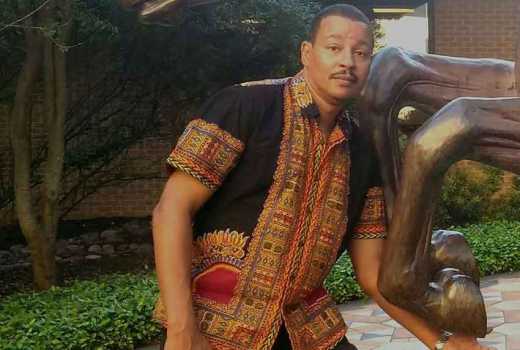
There are different levels of discipline that are required at every stage. And I think that’s sometimes the biggest challenge.
Alright, but, what went wrong?
I don’t think anything went, “wrong,” per se. I think we were two individuals whose dreams, passions, ambitions and careers, over time, ceased to be compatible with the marriage. I think that’s what happened. But we decided to define what kind of relationship we wanted going forward, and that was to be amazing co-parents. And we are.
And also, I don’t call myself a divorcee, I was divorced.
Okay, that’s an emphasis, you’re not a divorcee?
No. And, before I got married again, I kept having this problem when dealing with immigration whenever I was required to check those boxes, “Single, married, or divorced.” I never checked the “Divorced,” box, I always chose, “Single,” but since some of the immigration staff knew of me, they kept giving me trouble about it. It was frustrating. (Laughs)
Why not just check, “Divorced,” then?
Because I wasn’t. Divorce is a moment, you cannot continue being divorced. That couldn’t be my identity. I refused to let it be. I was single. Immigration could manage with that. (Laughs)
I also don’t do exes anymore. Ex-girlfriends, ex-wife, ex-this, ex-that, no, those were people I was with. They are not exes. I can’t define people as, “exes,” no.
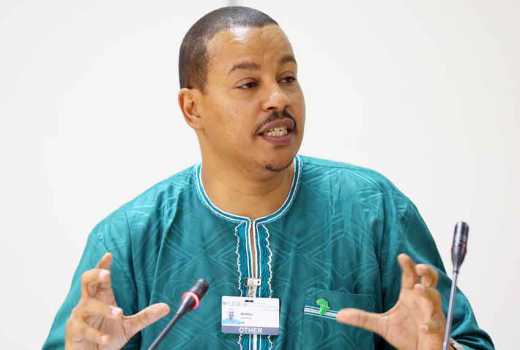
I’ve heard it said before, that divorce is like a death; did it feel like a death to you?
(Shakes head) No. I think that’s magnifying it. But I understand how it could feel that way to some people.
The key I’ve found, is to tackle it head on, and soberly, so everyone involved comes out of it whole, and it doesn’t destroy someone you loved and lived with.
Is it painful?
(Nods) It can be. Divorce can be painful, and it can come with lots of anxiety for those involved, but again, if you come at it powerfully, it’s easier to manage.
In retrospect, is there anything you would have done differently, when it came to your past relationships?
I don’t do regrets. However, I’ve in the past, considered myself a serial relationship assassin.
That’s interesting, a, “Serial relationship assassin.” I don’t know what to think about that Irungu. Is that a good thing?
Yeah, I hear you. Many of the people I was with experienced this with me, if I was in a relationship and realised it’s not working out, I’d just suddenly disappear. I think the word for that, from young people these days, is, “Ghosting.” I would just up and end it. Abruptly. No explanation, no nothing.
I realise now, that it wasn’t the kindest thing to do to another human being. I’m remorseful about it. That’s why I, at some point, reached out to all the ladies I’d hurt. I picked up the phone and rang them one by one, hoping to explain myself.
How did they react?
Some laughed and thought it was an insane thing to do, and wondered why I was bringing up past issues, after so many years.
But some acknowledged what I was trying to do, and admitted that I’d really wounded them. I was horrified. That’s not something I’m proud of, to know that I caused another human being a lot of unnecessary pain and hurt. But I was glad that I came complete with them. I felt lighter. It was good for me too.
What would be your relationship advice, to anyone looking for guidance?
Oh, from my very humble life experience, my advice would be that the best relationships, and even friendships, are the ones where one is intentional, honest, and you hold the interest of the person you are with.
And, any advice to the ladies, on how to handle relationships?
Don’t allow yourself to be a second-class citizen. I see a lot of this, and it’s unfortunate. Don’t feel pressured to play small. You deserve the very best, and to be treated as such.
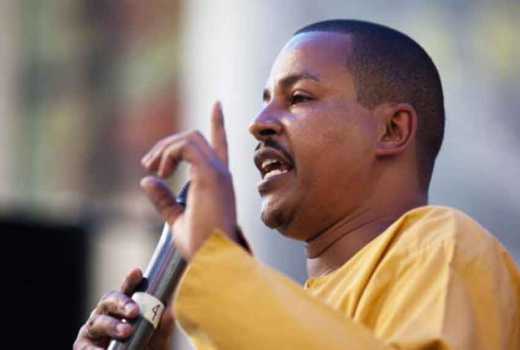
Having been married twice, would you have the cheat-sheet for your fellow men, on how to handle and understand women? Do you fully understand women now?
(Laughs) Oh, no. Not at all. Let me not purport to have all the answers. Life has taught me to be humble about a lot of things, I better remain humble, even on this.
I heard that you have seven children; is that correct?
At the last count, yes. (Laughs heartily)
Seven, Irungu? Seven?
Yes. (Still laughing)
That number, in 2018, sounds huge, is it a huge number?
(Smiles) No.
Is it a manageable number?
Well, I don’t know if I “manage,” my children, but I’ve nurtured them, I’ve supported them, I’ve given them space to grow, but I don’t “manage,” them. I think that would be a bit difficult.
I allow them to be individuals, to be who they are, I think that’s one of the best things a parent can do.
Did you ever imagine you would have seven children?
(Reacts instantly) No! Absolutely not! Not at all. Never. (Laughs)
But it is what it is now. I’m okay with it. My father’s advice to me, was not to have more than enough children to fit in a car, because that would make things complicated when going to church. (Laughs again)
And now?
Well, now there are big vehicles (Smiles). There are 7-seaters and 14-seaters. (Laughs yet again)
One of your son’s eyesight, was affected due to a road accident, what’s his condition now, in terms of his vision?
He has what we would call a personal disability, since he is now blind. But as he would say, he has a vision for his life, his family, his community, and the things he’s passionate about. So in a way, he has more vision, than many of us who have two eyes that operate well.
Did his disability affect your perspective on a lot of things?
Certainly. Especially since there’s a side to me that likes to be in control of things when I feel threatened, a side that makes me micro-manage, and try to make sense of things as quickly as possible.
In the first month alone, I’d read everything I could to help him. I learnt about the different kinds of technology that are helpful to the blind, I learnt about the white sticks, about trained dogs, about the existing communities of the blind, I really went all out.
Did you have to make adjustments to his house?
(Nods) We did, we modified the house and created markers that would help him navigate things like furniture and the kitchen easily.
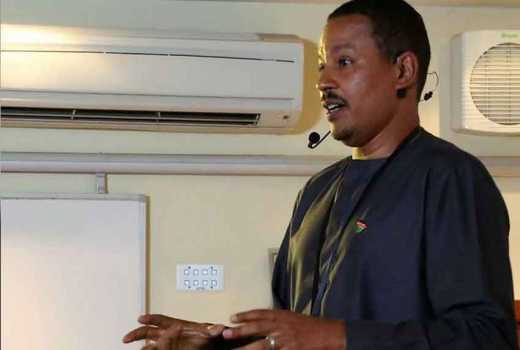
Actually, within just about three months, my son made me an omelette as a blind person, and I cannot tell you how proud I was. I was so incredibly proud. It was such a moment. That was a moment Yvonne. (Silence)
But at some point, I had to stop, he asked me to stop with the micromanaging, and just let him figure things out on his own. It was a tough request for me to take on board, but I did, and I gave him the space he needed.
Caring for persons with disabilities, can be a very challenging task, it’s not easy in many ways; did this experience make you more empathetic, to all the other carers around the world?
It did. It really did. This experience taught me what should be done, but it also made me sensitive to what should not be done, which in my case, was to not be too interfering with his life. To let go of the control. To let him be.
How is he doing now?
He’s great, he’s phenomenal. He’s a conservationist, a father, a husband, and he continues to re-invent himself daily.
Please pass my best wishes to him?
(Smiles broadly) Oh, how nice, I will. Thank you Yvonne.
No, thank you Irungu. Thank you for your time, and your willingness to talk about some very personal matters.
The gratitude is all mine. You have such incredible talent, for bringing out the humanity in people. This was a very pleasant interview. Thank you for asking me to do this. And for sharing people’s stories.
Yvonne Aoll is a writer and freelance journalist. You can read more of her work here www.yvonneaoll.com
 The Standard Group Plc is a multi-media organization with investments in media
platforms spanning newspaper print
operations, television, radio broadcasting, digital and online services. The
Standard Group is recognized as a
leading multi-media house in Kenya with a key influence in matters of national and
international interest.
The Standard Group Plc is a multi-media organization with investments in media
platforms spanning newspaper print
operations, television, radio broadcasting, digital and online services. The
Standard Group is recognized as a
leading multi-media house in Kenya with a key influence in matters of national and
international interest.
